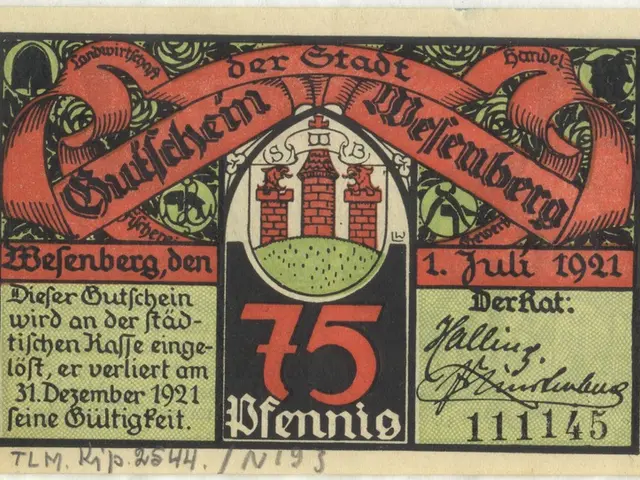Plummeting Oil Prices and Trump's Tariffs Trigger Fluctuations in Tenge's Value
Cashing in Kazakhstan's Currency: What's Behind the Plunging Tenge?
Let's dive into the recent chaos shaking up the Kazakhstani tenge, that little beauty of a currency that's been dealing with a wild ride.
After President Trump dropped a bomb with his new tariffs on imports, global markets have become a rollercoaster, reviving fears of a Return of the Rust Belt and a worldwide financial meltdown. The U.S. decided to slap Kazakhstan with a 27% duty on all goods, sending shockwaves straight to the tenge.
Here's the kicker - Kazakhstan's exporters aren't exactly direct targets of the U.S. tariff measures. But the tremors sure did reach the tenge, which plummeted to an exchange rate of 519.12 tenge per U.S. dollar on April 7, sliding 2.7% compared to the previous trading day. Over the week, the tenge weakened by a stubborn 2.9%.
Kazakh economist Galymzhan Aitkazin isn't shaking in his boots about Trump Admin decisions. He thinks the U.S. moves play a bit part compared to the bigger picture.
"The tenge is still losing its edge. But this is more about the natural evolution for a developing country's currency in the face of fundamental shocks. Tariffs? More like smoke and mirrors," Aitkazin wrote on his Telegram channel.
He argues the sharp decline in oil prices is the real irate Gilligan here, sailing toward lower tenge valuations. He explains that oil took a nosedive to a three-year low, trading at a measly $63 per barrel. And there's no sign of a blowout party ahead - on April 3, eight OPEC+ countries agreed to up production by 411,000 barrels per day, while Trump is pushing a full-on revival of U.S. oil production. Unhappy days are here for oil prices, chumming up the pressure on quotes.
If you follow the oil and tenge relationship all the way back to February 2022, it's easy to see how the former set the tone for the tenge's behavior: as oil prices plunged, the tenge weakened in response. After 2022, the ruble started to waltz in too, reflecting tight economic ties with Russia.
The National Bank of Kazakhstan knows the drill. In their official announcement, they cite a steep drop in risk appetite, and tumbling values of risky assets, a decline in major U.S. stock indices, and a dive in oil prices as the primary reasons behind the tenge's tumble.
In the lap of uncertainty, the currencies of emerging markets and commodity-based economies are wilting. From March 31 to April 7, the Emerging Markets Currency Index dipped 1.8%, with the South African rand sinking 7.3%, the Russian ruble slumping 3.8%, the Brazilian real descending 3.5%, the Indonesian rupiah sliding 1.5%, and the Mexican peso sagging 1.1%.
But here's a silver lining: the increased market turmoil has swelled trading volumes, with the National Bank reporting $456.4 million in operations on KASE on April 7 - that's almost double the average daily volume since the start of the year.
Not going gentle into the night, the National Bank cited no foreign exchange market interventions and reassured they're keeping a close eye on the situation, promising to jump in with appropriate measures if the tenge starts a descent into chaos.
- The volatility in the global markets, triggered by President Trump's tariffs, indirectly influenced the Kazakh tenge, with the currency plunging to an exchange rate of 519.12 tenge per US dollar on April 7.
- Galymzhan Aitkazin, a Kazakh economist, argues that while the U.S. tariffs play a minor role in the plunging tenge, the sharp decline in oil prices is the primary culprit, causing lower tenge valuations.
- The increased market turmoil, evident in the volatility of emerging markets' currencies, has swelled trading volumes in the forex market, with the National Bank of Kazakhstan reporting almost double the average daily volume since the start of the year.









